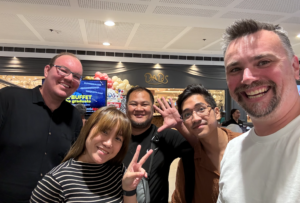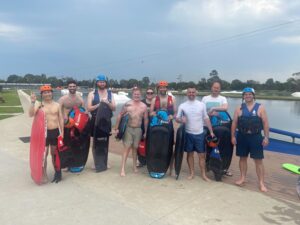Located by Merri Creek in Naarm (Melbourne) is CERES, a community garden and farm that shows the power of community and resilience. Started in 1982,CERES began as an initiative by a group of locals to combat the area’s low employment rate, evolving from a ‘work for the dole’ program, today it’s a thriving social enterprise that provides employment to nearly 300 individuals, half of those are full time!
The land on which CERES stands has a rich history. It was quarried for bluestone and later became a landfill site for household and construction waste. This misuse led to the pollution of Merri Creek, devastating the ecosystem that the Wurundjeri people had nurtured for millennia. However, over the past four decades, thanks to the efforts of employees and volunteers, the land has been rejuvenated. It now boasts hundreds of trees, native shrubs, and wildlife, including vibrant Kingfishers, Frogs, Bees and all sorts of insects and birds vital for a healthy ecosystem.

With the blessings of Wurundjeri elder Uncle Dave Wandin, the CERES team employs a blend of traditional and contemporary ecological practices to look after the land while also teaching these practices to students who often visit on school excursions. Their goal is to ensure the land remains sustainable and accessible for generations to come.
One initiative that particularly struck me was the CERES Inclusive Program. This program offers individuals of all abilities the chance to engage in outdoor activities that benefit both the community and the environment. It helps build strong bonds among the participants, staff, and the community.
Our team’s volunteer day at CERES was both educational and hands-on. We began by learning the history of the site, gaining insights into the multifaceted work CERES undertakes – from land conservation to education, farming, community engagement, sustainability, and the promotion of alternative technologies.
Then, despite the rainy day, the team was eager to get stuck into it. We started by harvesting snow peas (and eating quite a few as well), destined for local markets or the on-site café. Later, we divided into two groups: one focused on garden maintenance, weeding, and mulching, while the other delved into the intricacies of the germination shed. This shed is vital for producing flowers, herbs, and vegetable plants that either find their way into CERES‘ farm or are sold to nurseries. All proceeds from CERES are reinvested in to the organization, ensuring its longevity and continued impact.

Reflecting on our day, I realized how these experiences allow us to reconnect with the land and our community. As Salesforce consultants we are often glued to our computers, opportunities like these remind us of the larger world outside and our role we play within it.
To learn more about CERES and how you can support them visit their website by following this link.




